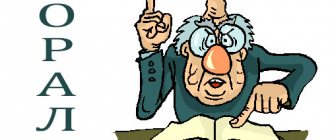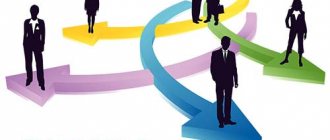Ethics is the science of morality invented by Aristotle. However, the reputation of both ethics and morality is hard to bear the weight of centuries, becoming increasingly associated with something unnecessary and unimportant. And yet, ethics does not want to calmly go into the silence of the night following the example of others - for example, astrology contains the root “logos” and appeared to study the connection between the position of celestial figures and the fate of a person. True, since the beginning of the application of the scientific approach, no traces of such a connection - and therefore no reason to consider astrology a science - have been found. “Everything immaterial is immaterial.” And biologists don't wait for the planets to be in the right position before cutting up a lab rat. But how and who they can cut is still regulated by bioethics.
Surely Aristotle knew how to pose the question correctly
Why don’t scientists listen to astrologers, but allow themselves to be limited by the demands of morality? In the West, according to tradition, religion is blamed - the Catholic Church is only happy to take on this responsibility: “Yes, yes, we forbid you to do such experiments.”
But this did not stop science in the Renaissance, when digging up fresh corpses to study human anatomy was worse than experimenting on people - the church in those days was not shy about disemboweling living people. Science has a lot of experience in overcoming obstacles—it’s all about that. Neither the Inquisition, nor superstition, nor bonfires, nor persecution could ever stop her. And now, when all this is behind us, science has suddenly stumbled upon a glass wall. Those who blame morality for slowing down science, and dream of freeing science from it, usually do not notice how, with the logic “if there is no God, then there is no morality,” they find themselves on the same side with religions, for which the postulate about the divine nature of morality is fundamental; and on the opposite side of science, because scientists are some of the most ethical people in the world. The glass wall of morality is not a barrier surrounding science, but the internal border of every scientist, the manifestations of which - ethical issues emerging from advances in biology and medicine - science has decided to deal with within the framework of bioethics.
And ethics itself was bashfully hidden under the roof of philosophy, which, like the Hufflepuff of the world of science, takes in those who are of no use anywhere else - not very ethical behavior towards ethics.
And not very scientific behavior on the part of science is as if Isaac Newton, instead of the law of universal gravitation, formulated the law of falling apples.
If morality is at least real enough to be one of the concerns of science, then the concern of science should be finding out what lies behind morality.
CONCEPT OF MORALITY
What is morality? We know that society is not a simple aggregation of individuals, but an integral organism, a complex system of socio-economic, political and spiritual relations, the bearer of which is ultimately a person as a particle of large and small: groups, collectives, classes, nations. Man is an active being, and in his behavior he is guided by his needs and interests, beliefs and habits. And society is interested in ensuring that the needs and views of the individual do not contradict the interests of other people. One of the forms of coordination and regulation of these interests, different in content and social significance, is morality.
Moral feelings and self-control (8th grade)
Self-control is the ability to control one’s behavior, based on the use of will, to resist the influences of the external environment and internal drives. Thanks to self-control, we are able to subordinate our own emotions and realize our own imperfections. Self-control can be called a strength of character, thanks to which we can suppress unnecessary emotions, control feelings and overcome complexes. Self-control is a strong-willed quality necessary for every successful person, whether he grows potatoes or commands an army.
What is morality?
Morality is a system of historically established requirements imposed by society on human behavior, loyalty to which is voluntary. Moral requirements express a model of human behavior approved by society, his attitude towards people, towards himself and towards the environment. It is enough to scroll through any news portal to understand how people around you live - https://tobolsk.ru/. Moral consciousness has also developed special concepts with the help of which human actions are justified or condemned: good and evil, justice and injustice, etc. Man has always been interested in the question: why is one behavior justified by society, while another is condemned? Why does a bad deed bring suffering to a person, but a good one brings joy, even when no one but himself knows about it? In search of answers to these and similar questions, people created a special field of knowledge - ethics.
Moral choice is responsibility. Moral choice (8th grade)
Moral standards provide an example of correct behavior. However, there is no reason to claim that a person always behaves correctly. He can be kind, generous, merciful, honest, noble, etc. But he is also capable of meanness, lies, betrayal, immeasurable cruelty, etc. Believers have a wonderful word for this case - sin. Everything that a person has done against morality, any evil, is a sin, they say. Instead of the program that is laid down by natural evolution, man is given freedom of choice in his actions - between good and evil, moral and immoral. This is a great gift that no other living creature possesses. A person himself always decides what to do: to observe or not to observe moral standards. When a person thinks about what choice he should make, this is a choice of action or, more precisely, a moral choice - when a person not only internally chooses his moral (good or evil) attitude, but also acts in accordance with his choice. We can say this: moral choice is the choice of one’s attitude (good or evil) towards other people.
What is ethics?
Ethics is the science of the essence and content of morality, the laws of its emergence, development and functioning. Marxist ethics is an integral part of the ideology of the working class; it includes a theoretical understanding of morality. Marxist ethics for the first time determined the socio-economic source of morality, the patterns of its development and functioning. She pays special attention to the content of morality, expressed primarily in its requirements (principles, norms and rules), as well as the laws of its functioning - the fulfillment of a regulatory function, the process of transforming moral knowledge into beliefs and needs.
The study of ethics attracts a person’s attention to the moral side of his behavior, teaches him to see the moral aspect in any type of activity, helps him correctly solve his moral problems: to form an idea of the meaning of life and the moral ideal, to understand that morality is not established on its own, spontaneously, but requires a person’s activity in the struggle with himself, with the remnants of bourgeois morality in his consciousness and behavior, that he embodies morality” in practical affairs, in the fight against manifestations of evil and the affirmation of good. The study of ethics gives a person the opportunity to understand the entire system of moral relations in society and help him in organizing moral education and self-education.
Ethics is one of the popular sciences of the early 21st century
Even those who study it or face ethical problems in their activities are not sure that ethics is a science.
The contribution of science to people's lives is equated with their importance: the increasing speed of technological change increases the sense of importance of the natural and applied sciences behind them, while the effect of the discoveries of the humanities is less noticeable, some of them have not brought news for so long that they become synonymous with uselessness.
And ethics in a scientific context is also an irritant for many. If ethics were officially among the sciences, a crowd with torches would definitely come for it, demanding sacrifice as payment for Pluto.
The image of a crowd with torches, although metaphorical, is just as relevant in an era when people are busily discussing how best to organize a visit to Mars, as in the days when they were afraid to sail ships too far into the ocean, lest they be accidentally thrown over the edge of the Earth. washed away. Because the crowd has not gone away: instead of torches there are flashlights on smartphones, from which the crowd now gathers online.
And this is no less important an indicator of the dynamics of scientific development than Martian plans.
Accelerating technological progress shows the potential of the natural sciences, and stalling social and cultural development is the price of stagnation in the social and human sciences.
Ethical problems have always been part of objective reality, influencing it, leaving consequences and even economically expressible ones - money does not combine well with morality, and calculating the cost of ethical costs, for example, is quite realistic.
One of the most pressing examples right now is the policies that guide online mass communication platforms (primarily social networks and social media) in regulating the relationships among their users, with their users—and even the internal relationships within their teams.
The general state of affairs can be described as a deep split under the ideological monopoly of political correctness. The situation is like being stuck in quicksand, where every movement makes the situation worse - and begins to look hopeless; although she never was.
The problem of political correctness arose entirely due to the approach to the phenomenon of ethics as a political phenomenon. This is a problem of the erroneous language of description, and not the indescribability of the phenomenon itself.
What is political correctness
Political correctness is a secular system of ethics based on the protection of the weakest, the oppressed in the fight against inequality, which arose in the political movement of the New Left.
The New Left is a Western political movement for social justice that began in the late 1950s.
The New Left became an attempt to rebrand socialism, a term whose desired meaning had long been replaced by Stalinism, which had nothing in common with socialism, Marscoism, or the left idea in general.
At the end of the 50s, the first generation that did not experience the World War, at least at a conscious age, grew up among a huge number of other mothballed problems of society, the fight against which was destined to become the war of the post-war generation.
On the other hand, the consequences of Stalinism—including both the Soviet suppression of the Hungarian Uprising of 1956 and the condemnation of Stalin's personality cult at the 20th Congress of the CPSU that same year—pushed the New Left to return to the ethical roots of Marxism—the humanistic ideals of the 18th century. -19th centuries - and the relaunch of the leftist idea from a preserved version that preceded how “something went wrong” with the “old left”.
The New Left turned out to be an eclectic movement: it united activists who fought for civil and political rights, women's rights, against racial discrimination, against persecution for sexual orientation, police brutality, colonial wars, the beginning of the war on drugs, etc. These were the original Social Justice Warriors.
There was no unity among them either regarding the idea of class struggle or regarding Soviet symbols, although the hammer and sickle were, de facto, a symbol of Stalinism - that is, precisely a symbol of the replacement of socialism with its complete opposite.
It was a struggle against the dominance of the ethic of moral inequality, perpetuated by the hierarchical structure of society, the response to which was the mirror interpretation of the manifestation of any inequality as a form of oppression - the cornerstone of the ethic of political correctness.
Political correctness is the ethics of social struggle, the ethics of the New Left movement, developed in the course of a clash with the ethical system of their fathers and grandfathers.
This is ethics based on the moral values of the movement that carried out the sexual revolution in the 60s, defeating racism, homophobia, militarism, etc. in battle. This does not mean that in the 70s none of this already existed - it means that ethics, which was dominant in the 50s, had enough defenders on its side who were convinced of their moral correctness, in the 70s already have been marginalized - for example, the ideas of white supremacy continue to exist to this day - but their bearers do not risk openly claiming moral superiority or equivalence to the ideas of equality of people of all bloods and colors.
It's the difference between two positions fighting and closing the distance between them. Even when the front line that separated people disappears, the distance between them does not disappear on its own. But this is a post-war concern, requiring a value system that encourages cooperation and tolerance.
In these circumstances, the ethics of struggle—even for a just cause, for social justice—becomes destructive, because when viewed through the prism of political correctness, here it is, the front line, in place, and has not disappeared anywhere. As a result, the ethics of the side that wins in the struggle of value systems turns from an instrument of victory into an instrument of split.
In the absence of a real struggle for real ideals, scenarios in which the scenario of social conflict is reproduced become more and more absurd: political correctness already functions like a cancerous tumor, metastasizing in the form of new self-destructive conflicts.
In a movement that began with Stonewall, Rosa Parks, Martin Luther King, the very concept of a Social Justice Warrior is now self-parody, a derisive shorthand for SJW, and their front is tweets from the 2000s and photographs from the 1980s.
Political correctness in the 21st century
By all indications, by the turn of the millennium, political correctness was already beginning to fade away, but then a revolution happened - the best gift for every leftist - Web 2.0, the revolution of social networks, which unexpectedly turned out to be fertile ground for the renaissance of the ideology of political correctness, with new energy tearing the communication fabric with contradictions already in XXI century.
Google's dismissal of James Damore, an engineer and biologist by training, in 2022 turned out to be a big scandal because in an analytical note compiled at the request of his colleagues, he mentioned the biologically determined difference in the psychological predisposition of people of different sexes to different types of activities - in other words , that women are a minority in software development, so the majority have found something more interesting to do.
In a similar situation, Twitter, and with it YouTube: bloggers are banned, videos are demonetized - and all this happens in a very nervous atmosphere, because for every user who agrees with what is happening, there are users who, not unreasonably, reproach the policies pursued by the services for various sins against common sense.
The Internet, which until recently was a space left to its own devices, largely organized by self-organization, suddenly turned into a battlefield between the Holy Inquisition and heretics, whom Google is almost literally trying to ban.
This reversal would be extremely dramatic if it weren’t so ironic: the creators of most social networks are rather antisocial people.
And Jack Dorsey, who invented Twitter, suddenly found himself in the situation of an acoustic engineer who designed the new stage of the Mariinsky Theater, who was suddenly announced that from now on he was giving two concerts a week, replacing Gergiev as a conductor.
How did he get into this situation? After all, for a long time, Twitter, like Facebook, like YouTube, and many other platforms felt great in the role of a platform, and interventions in the life of the community were, for the most part, limited to settling copyright claims.
In a sense, these were carefree pagan times, akin to the life of the inhabitants of the Caribbean islands before Columbus landed on their shores. In the face of political correctness, the anarchic space of eclectic pagan beliefs for the first time encountered the power of an organized ethical system.
How and when did morality arise?
Morality is the oldest form; human consciousness. Even the simplest primitive human collective could not do without morality. It was formed spontaneously, in the process of collective labor, which required the common efforts of people, because everyone’s life depended on the cohesion of the team, and everyone was forced to worry about his fellow tribesmen, without whom his personal existence and struggle with harsh nature would have been impossible.
Team unity required curbing the animal instincts of primitive man. The first moral norms developed in collective work (mutual assistance, obligatory work of everyone, loyalty to the commandments of ancestors) were woven into the life of people and played a large role in the formation of the primitive community. Everything was used to establish these customs: prohibition and public condemnation, physical punishment and even expulsion from the community. A person’s entire life took place in the sight of the collective, whose reaction to the behavior of the individual was of a practical nature, since the real position of the person in it depended on the collective.
Moral knowledge and practical behavior (8th grade)
Unlike state laws, there is no official punishment for violating moral standards. What can ensure compliance with moral standards? The simplest solution at first glance is to take moral norms and turn them into state laws. Simple, but unwise for several reasons. Firstly, is it possible to fit concepts such as “compassion”, “honor”, “conscience” into legal norms? And secondly, even if this were possible, would everyone who would fulfill such norms really begin to do so quite sincerely? Or will they rather portray highly moral people, thereby increasing hypocrisy and lies? There is a point of view that violations of moral standards, and crimes in general, are the result of property inequality. Proponents of this position argue: for morality to triumph, it is necessary to create a system in which the needs of all people will be fully satisfied. At the same time, the causes of crime will disappear. But there will always be people who strive for power and self-affirmation, while wanting to achieve what they want at any cost. Unfortunately, there are no legislative, social or other guarantees of morality. There is only one guarantee - it is in each individual person, in his ability to act morally .
Historical forms of morality
The process of moral development is complex and contradictory: progress in one direction may be associated with regression in another. Thus, F. Engels called the transition from a classless to a slave-owning society “a fall from the simple moral heights of the old tribal system.” Indeed, slave-owning communication gave rise to base moral feelings: greed, passion for pleasure, contempt for physical labor. Yet slavery gave rise to moral progress: as labor productivity increased, for the first time in history, man became valuable as a labor force.
The rejection of moral values is first carried out in practice. In ideology, the ruling class still continues to propagate its moral standards; therefore, hypocrisy is growing, the gap between the theory and practice of moral life, between what should and what is, between word and deed, is widening. However, progress is inexorable. In bourgeois conditions, the importance of proletarian morality begins to increase, which contains opportunities for more perfect regulation of relations between people. In its content and purpose, it is directed against bourgeois morality. Having emerged in bourgeois society, proletarian morality is enriched and developed under the influence of the revolutionary movement, and after the victory of the socialist revolution it becomes dominant.
Today in the world two moralities are opposed to each other: modern and bourgeois. These are antipodes. There is an uncompromising struggle between them. The moral progress of humanity is associated with the establishment of modern morality.
Freedom and responsibility (8th grade)
A person must always comprehend his actions, foresee their consequences - good or evil - and, of course, bear responsibility for the result. Because, even if we work hard and earn good money, but at the same time we do not think about the meaning of our activity, its social consequences, we can become a toy in the hands of evil and, willy-nilly, help commit crimes. Each of us, whether we want it or not, always bears responsibility for the social results of our actions. To be a responsible person means to correctly understand your own and other people’s problems and difficulties, try to foresee the results of your actions and be able to answer for them. There are different types of responsibility, but the most important one is moral responsibility , responsibility before one’s own conscience. Freedom is the ability to act at your own discretion . But if you have already made a choice, you will be responsible for your actions yourself. Because freedom and responsibility are like two sides of the same coin: one is impossible without the other. Freedom without responsibility is irresponsibility, it is arbitrariness, it is permissiveness, licentiousness. Irresponsibility is always associated with indifference and frivolity, with empty self-confidence. This is a blind, thoughtless, random choice, which often leads to harmful consequences, both for others and for the one who committed the irresponsible act. From this we can conclude that a person is always in a difficult situation. There has never been a ready answer, and there never will be. You have to decide for yourself what to do and take responsibility for your choice.
Features of modern morality
Modern morality is the highest level in the moral development of society. It has a number of advantages. As the morality of the revolutionary class itself, it is free from the illusions generated by class limitations. Its requirements coincide with the requirements of the objective laws of development and orient a person to promote progress. It is addressed to all workers, to those who are interested in the modern transformation of the world. This is the morality of active social action: the morality of fighting the old and establishing new forms of life. In modern morality, everything that was developed by the moral consciousness of previous generations, of all humanity, is comprehended and critically revalued. Modern morality was formed as the working class developed, its participation in the socialist revolution, in the construction of socialism. Its formation is a complex process that has gone through a number of stages. Today she is the morality of the builder of modernity.
The morality of a developed society has its own value system. It includes moral requirements that are different in content and form, in level of generalization and specific purpose - principles, norms and rules, customs and traditions. A special place among them is occupied by simple moral norms, which form the foundation of morality. The introduction of a person into the moral culture of society begins with the assimilation of the rich and varied content of these norms. Only on their basis can one master more complex norms.
Among the various values of spiritual culture, moral values occupy a special place. Society has always formed an idea about good and evil, about honest and dishonest, about fair and unfair forms of human behavior, about what is worthy of a person and what is worth devoting his life to, and what humiliates him and hinders him. These values of society help to distinguish, see and evaluate morality.
Political correctness is not a problem, but a symptom
Blaming political correctness for what it is is stupid.
Even ideas undergo natural selection, as a result of which value systems acquire certain evolutionary survival mechanisms (not directly, but through their carriers, of course).
If the enemy is inequality itself, it is not enough just not to give offense to the weak, it is not enough to raise them higher up the hierarchical ladder through positive discrimination, affirmative action - you need to shame any desire for success and growth of those who are already higher, who were less oppressed or are not considered at all for the oppressed - because this also increases inequality.
Actually, this is the key difference between political correctness and ordinary tact: it is not enough to behave decently, without earning your success at the cost of someone else’s misfortune - when the goal is equality, not freedom, then it is impossible to be free from the guilt of the oppressor, arising from the very fact of inequality, the guilt of white privilege , for example, or complicity in patriarchy.
The paradox of political correctness.
Political correctness arose in the struggle for social justice - it is a wartime ethic based on the values of social struggle - therefore, any situation through the prism of political correctness looks like a confrontation, which in peacetime turns into absurdity.For example, if fat shaming is recognized as a social evil, then political correctness stands on the guard of oppressed overweight people who suffer, for example, from inequality in the areas of personal life, sex and dating - against, it turns out, everyone else.
And from this point of view, the simple absence of fat shaming and body-positive attitude towards people of any shape and build is not enough - ordinary correctness would be enough for this; in the paradigm of political correctness, any worsening of inequality is evil, so pumping up your own abs is also fat shaming, because this is an increase in distance → worsening inequality → an even sadder situation for those oppressed by excess weight on the dating front.
The ethics of equality requires those who are “more equal than others” to bend down a little, to shrink in order to reduce the distance, and not to exaggerate it.
The real reason for the growth of this cancerous tumor is the complete lack of healthy ethical immunity. Carried away by technical progress, people completely did not notice that ideological progress in many aspects froze in the 19th century - the entire modern leftist idea that grew out of the “new left”, who tried to reinstall the idea from scratch, that is, from the philosophical foundation on which Karl stood Marx, overlooking such little things as the subsequent 200 years of development of ideas about human nature from the point of view of biology - which should, in theory, be included in new releases of ethical systems, but this does not happen - because there were no new releases: society The 21st century has gone online, gives legal subjectivity to robots, solves cloning dilemmas, wonders what the meeting with AI will be like - and at the same time tries to regulate the huge sphere of communication based on the ideas of the 19th century, for two centuries playing the barrel organ of left against right, socialists against fascists, liberals versus conservatives - which, by the way, fits perfectly with the tribal instincts of primitive man, managing to further archaize the discussion, which is already 200 years of Groundhog Day.
How political correctness found its way into the realm of uncritical perception of companies
Taking advantage of the ideological vacuum of a relatively atomized community, the Social Justice Warriors began to rock the boat, creating both demand and supply at the same time: the entire public network space turned into a continuous generator of righteous anger, indignation and offended feelings, directed both outward, speaking out, not without the assistance of the media , no less, as if on behalf of the entire Internet: the Internet this, the Internet that - for any activity outside of it - and inside, in full accordance with the paradigm of wartime ethics, turning any communication space into this and that side of the front, involving more and more users until they reach quite a lot of users, causing them to have an emotional reaction to their activity - and it doesn’t matter whether it’s positive or negative - it’s important that at some point there are already quite a lot of people on Twitter who are annoyed SJW - or who support SJW: the split into two camps has been successfully completed, and many users, especially on the “other” side of the front, did not even understand how they ended up being assigned to a certain ideological identity, but tribalism is so fundamentally rooted in a person that it is enough such an unobtrusive invitation so that primitive social instincts take control of behavior.
As a result, the space in which ethical discussions did not go beyond private squabbles turns into a Verdun meat grinder of value systems - and SJWs, finding more and more guilty before the tribunal of political correctness, create, at the same time, a demand - the appearance of huge, catastrophic scale, ethical problems: discrimination, harassment, hate speech, bullying, slander, disrespect, insults - as well as the ideological threat that is raising its head - the awakening fascist reptile, anti-Semitism, far-right activism; and a proposal - that is, its value system as a model for organizing the relationship between the community and the platform, a constructor of elements and principles from which it was already possible to assemble the necessary policies regulating the content, the relationship of users on the platform and the platform with users.
And to make the hint clearer, of course, the platform itself must also be subjected to merciless criticism for moral connivance as for complicity, pushing for the inevitable choice of a value system, guided by which the platform can move on to active action.
It was then that it turned out that, with the exception of the chthonic horror of the ultra-right idea and the triumphant anarchism of the ultra-left Anonymous, the ideals of political correctness under the protection of social justice warriors turned out to be most similar to “generally accepted moral norms.”
Holiness Privilege
is the attribution of sanctity to certain ideas, which suppresses critical thinking, allowing sanctified ideas to travel freely under protection. Either a bug or a feature of human consciousness, which in all previous eras ensured the well-being of the priestly class.Once you begin to notice how triggers work, shifting people’s reactions into the “this is sacred” mode, turning off critical thinking, you also notice an alarmingly large number of variants of still active triggers in use - however, old values, like “patriotism,” are already clearly running out of steam.
The success of political correctness, in particular, lies in the fact that it, too, somehow managed to penetrate the “holy of holies” and gain a foothold in the privileged area of uncritical perception.
The geeks had nothing to oppose to their pressure - and there was no reason to do so: they knew that there was some kind of moral norm, and, in the absence of alternatives, they decided that political correctness was this norm.
And one by one, industry giants have opened their gates to SJWs, embracing their faith, values, and side in the eternal battlefield for social justice. This is, in essence, about access to the ethical DNA of these companies, which allowed political correctness to edit their moral genome: the basic principles of service policy in community management - what behavior is considered acceptable, what content is considered acceptable, what user complaints and what sanctions to respond to.
Perhaps the secret to successfully exploiting this vulnerability again is to use it on organizations rather than individuals - organizations, on average, tend to act cowardly and fear noise more than loss, because organizational behavior is just a function of the behavior of decision makers ; and in a corporate environment, there is a rational choice between decisiveness, when all attention is focused on one top person, and the entire burden of responsibility is on his shoulders, and cowardice, which can easily not be taken personally - in other words, the choice between accepting responsibility and discharging it with spreading it over the entire team often turns out to be a waste choice.
However, the scale of the leak of both dynamic and demonstratively horizontal companies in the mechanics of decision-making like Google, Twitter, and traditional corporations like Coca-Cola still looks, at times, grotesquely exaggerated - the ability to specifically drown out critical thinking and the willingness to exchange the psychological atmosphere in the team and even, in part, a public reputation, allowing sellers of invisible goods to carry out their rituals of promoting diversification, tightening inequality and exorcising the evil spirits of microaggressions right on campus is downright scary.
In addition to damaging the reputation and atmosphere in the team (Google has especially distinguished itself in this, where employees were sandwiched between training on gender diversification and the launch of a version of the search censored by the Chinese Communist Party), companies are also literally pouring gigantic funds into maintaining an insane staff of moderators. Now the record for the distance of the roof that has gone away is held by Facebook by a wide margin - however, in their case, this is not so much SJW sorcery as an attempt to drown out the voices from the American Congress reproaching Zuckerberg for condoning the propaganda of foreign countries carried out by Facebook’s advertising tools: “La- la-la, I don’t hear anything, a lot of new moderators have been added, thousands of them.”
At the same time, in order to resist this value “explosion from the past,” you don’t even need to try very hard and create a new idea or a new philosophy: it’s enough to question the one you already have to deal with. Unlike real DNA, ethical DNA is absolutely completely decipherable and editable, so as not to introduce some old ideological sore from the 19th century into the business of the 21st century.
Signs of moral standards
- sustainability
Moral norms, represented, for example, in customs and traditions, can persist for a long time. Having originated in one century, they continue to be observed by several generations of people until they are replaced by other norms, but this process, as a rule, takes a long time. The second feature of morality follows from this.
TOP 4 articles
who are reading along with this
Morals and ethics
Spiritual culture of society
The spiritual sphere of society
What types of deviant behavior do sociologists identify?
- variability
Moral standards tend to change, since the social structure itself is subject to constant change. The emergence of new social groups is always associated with the formation of their own spiritual and material values, which do not always coincide with the values of the majority. The strengthening of the role of new layers of society leads to the fact that their values and norms are spreading more and more and becoming generally accepted.










